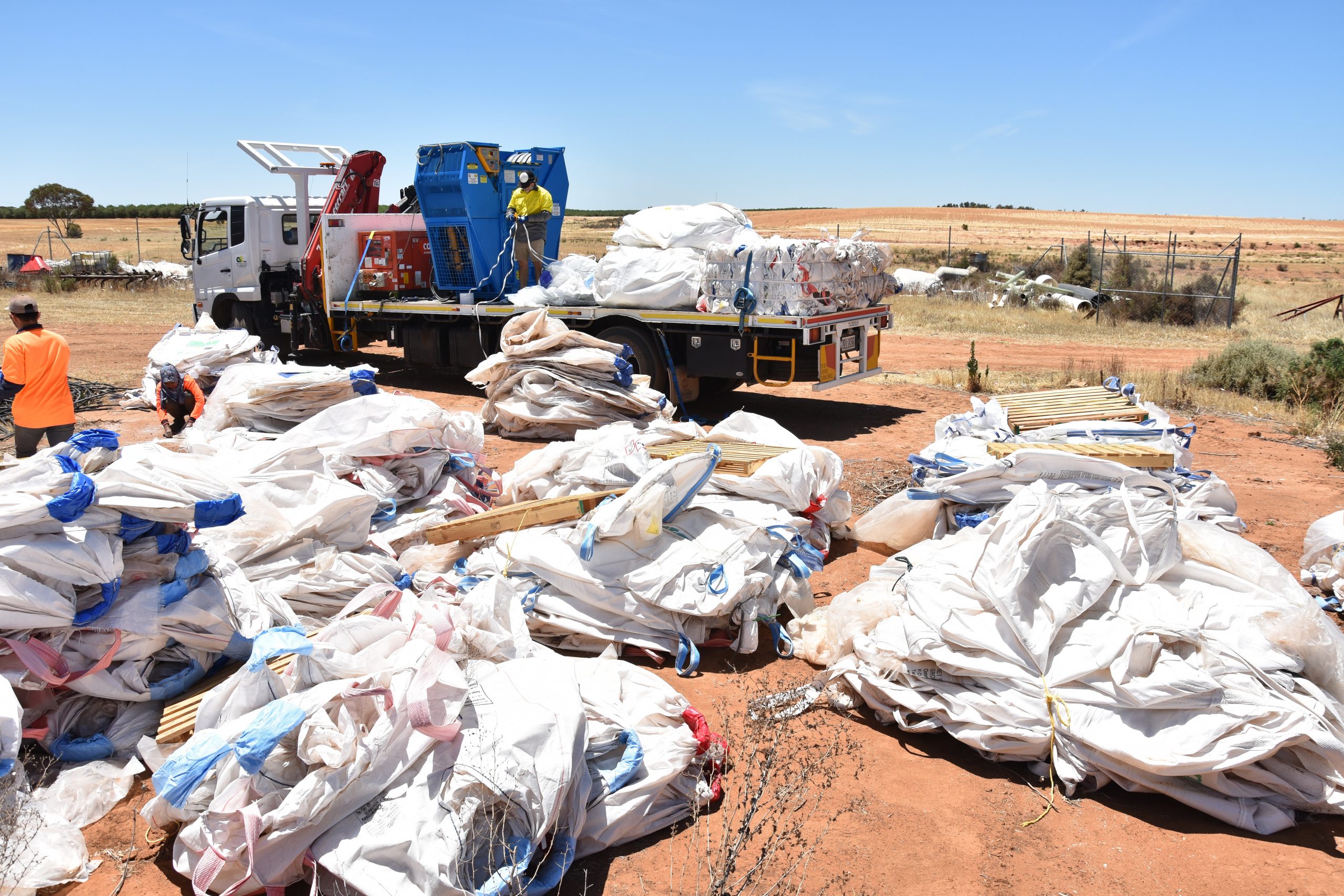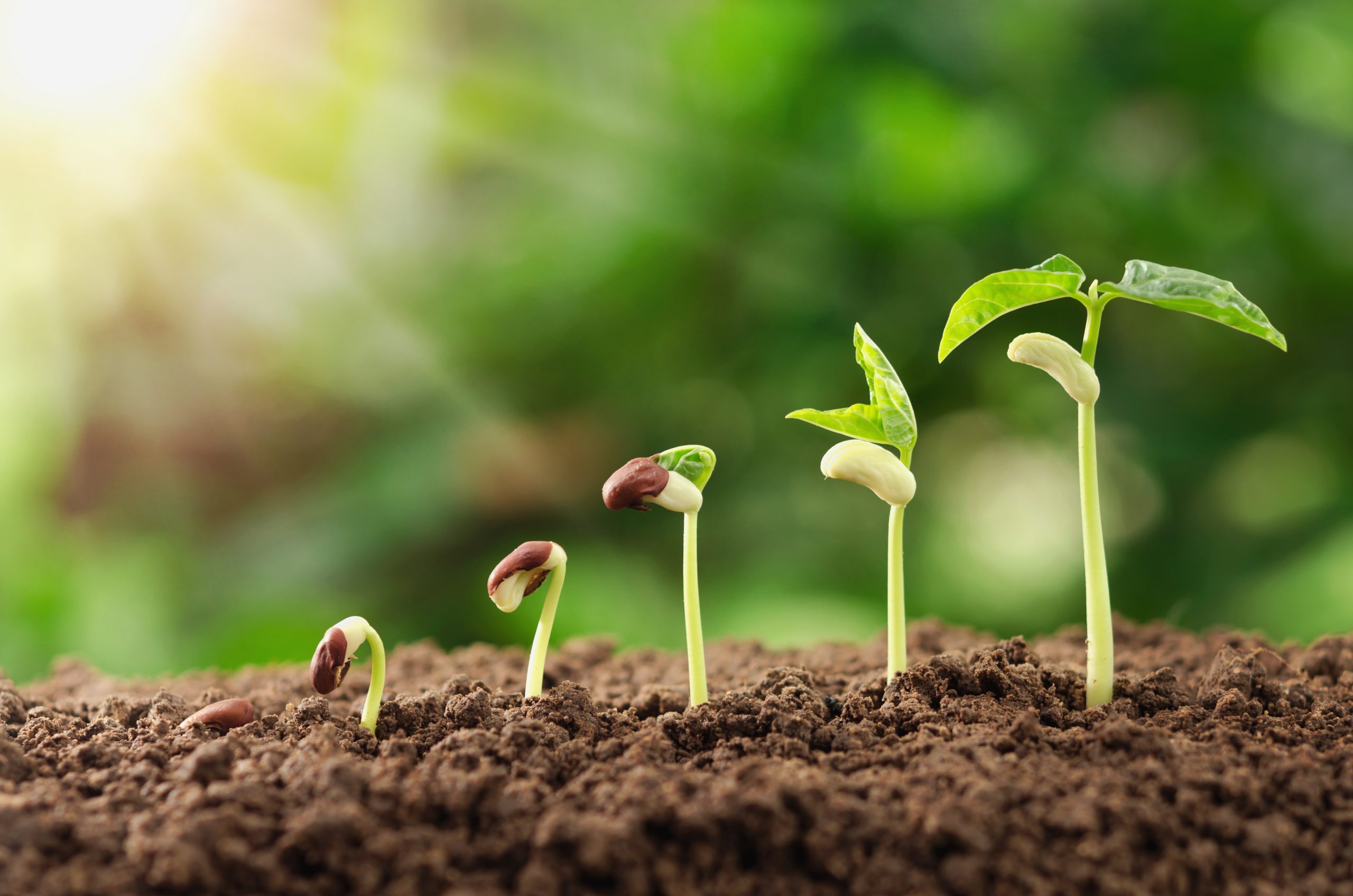
Funding boost for organic growing operations
5 June 2020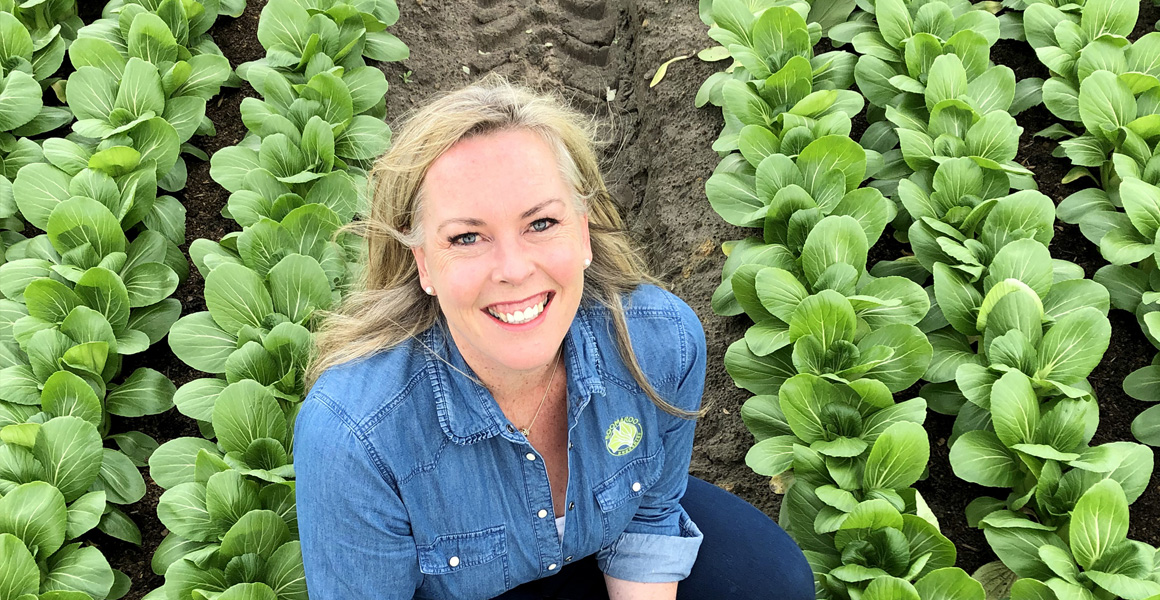
Jo Van Niekerk: Rolling up her sleeves to achieve veg industry goals
9 June 2020With the prohibition of exporting waste and recyclable plastics from Australia occurring from mid-2021, fertiliser manufacturers are exploring novel ways to dispose their recyclable packaging, such as bulk bags, in an environmentally- and user-friendly manner.
Looming environmental regulations and new state laws already in place are building pressure on the Australian fertiliser industry to effectively manage waste and recyclable packaging.
Used fertiliser packaging, particularly large bulk bags predominantly used by the horticulture sector, has largely been exported to Asia for recycling, found its way into landfill or been disposed of inappropriately.
However, by mid-2021 and in-line with international agreements, exports of waste and recyclable plastics will no longer be permitted from Australia. With new laws in several states, incorrect disposable deemed to be harming the environment also can result in massive fines and/or imprisonment.
It means fertiliser manufacturers need to look at systems for future regulatory compliance, as well as protecting their brand and maintaining a strong commitment to the environment and their corporate and social responsibilities, while producers, or users, are under obligations to ensure correct disposal.
The developments have increased the spotlight on Farm Waste Recovery (FWR), which has been collecting large bulk bags from properties for some major manufacturers signed up to its industry stewardship program.
Recovery efforts
The FWR service has collected more than 3,000 tonnes of plastic since commencing four years ago and will soon come under the new banner, Big Bag Recovery, which will cover all industries. Recovery is expected to jump dramatically to around 48,000 tonnes annually, commensurate with the volume of bags imported into Australia. FWR will continue to collect unbranded waste plastics.
The business has mainly exported the bags to Asia and has plans to build a network of regional processing facilities to establish a full circle recycle industry across the country under its parent, Industry Waste Recovery. The new recycle industry would create hundreds of regional jobs and refine the waste back to a resin before manufacturing various new plastic products.
“The resin can be used to manufacture products like evaporation balls to go on water storages for seven to 10 years before being harvested, refined back to a resin and starting again. This is true recycling,’’ FWR Managing Director Stephen Richards said.
“Ultimately, it is about preventing the need for manufacturing new plastic.’’
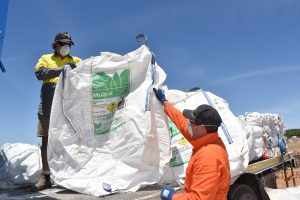
Farm Waste Recovery Managing Director Stephen Richards hands a used Haifa bulk fertiliser bag up to his colleague, Stewart Ford, for transfer into the baler.
Sustainability focus
Earlier this year, FWR was collecting bags in the almond industry in Victoria’s Sunraysia region with manufacturers including Haifa Australia, one of the first companies to sign up to its stewardship program, which has been a major advocate with other suppliers and producers to help ensure the industry’s future environmental sustainability.
Haifa is one of the major suppliers of water soluble nutrients to the horticulture industry. It has had strong success in Australia with its Multi-K potassium nitrate fertiliser, Poly-Feed nitrogen, phosphorus and potassium formulas, and Multicote controlled release nutrition products. It also recently launched several innovative, low sodium fertilisers for high quality horticulture and greenhouse systems.
“Haifa has been one of the leading organisations behind the stewardship program. It has been actively promoting it in the different industry segments and particularly the almond industry,’’ Stephen said.
“Trevor Dennis (Haifa Managing Director) has been very proactive and encouraging competitor suppliers to join because he’s cognisant of his industry being seen in a positive light.
“The program is nation-wide, and we have been growing generically as we go into different industries, but not all companies are on-board. The significant leaders in industries have been the early adopters, which has then encouraged some of the smaller suppliers to also come on-board. For others, the risk is around regulatory compliance and social damage to brands, reputation and market share due to not being seen as a good corporate citizen.
“For growers, the risk is linked to the fact there is nowhere to dispose of the bags, so it has been pushed back onto the brand owners.’’
Find out more
Please visit the Haifa Australia website.
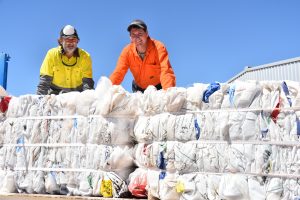
Stacked bulk fertiliser bags ready for collection from the fenced-off site at Olam’s ‘Campbell’ almond property in the Kenley area of Victoria’s Sunraysia region.
This article first appeared in the winter 2020 edition of Vegetables Australia. Click here to read the full publication.

